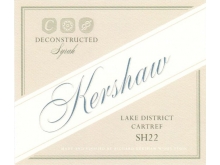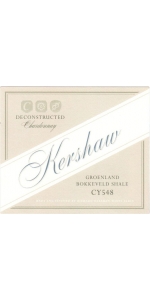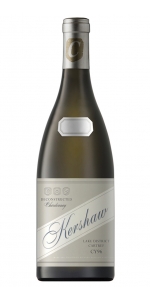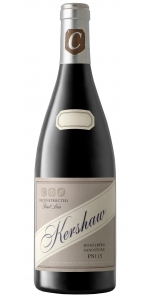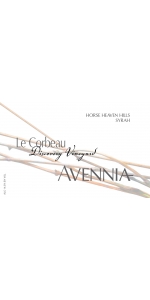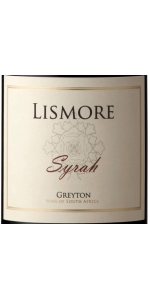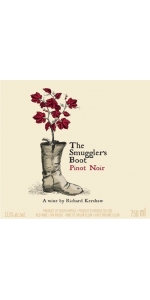Kershaw Syrah Deconstructed Lake District Cartref SH22 2017
3 bottles with free shipping for: $315.00
6 bottles with free shipping for: $570.00
12 bottles with free shipping for: $1,020.00
| BUY MORE! SAVE MORE! | ||||||||||||||||||||
|
| Country: | South Africa |
| Region: | Western Cape |
| Winery: | Kershaw |
| Grape Type: | Syrah |
| Vintage: | 2017 |
| Bottle Size: | 750 ml |
Kershaw Syrah Deconstructed Lake District Cartref SH22 is made from 100 percent Syrah.
The inspiration for this Syrah stems from my belief that the Elgin region has both a signature grape as well as particular terroirs within its demarcated boundary that reflect regional credentials. This Syrah was selected from a sub-region of Elgin from a specific vineyard and an individual clone.
Sourced from a single parcel in the Western part of Elgin, the 22 clone produces fuller, well-colored yet finely structured wines. They tend to be more concentrated as yields are low with more black fruit, black pepper and meaty notes. The Cartref soils, a mixture of decomposed sandstone, pebbles and quartz, add gracefulness and heighten the fruit intensity.
The grapes were handpicked under autumnal skies into small lug baskets and then manually sorted on a conveyor before the stems were removed. The destemmed berries fell onto a vibrating table in order to remove jacks and substandard berries before dropping uncrushed into a small 500kg conical hopper and forklifted into open-topped fermenters. The grapes underwent a 3-day maceration before spontaneous fermentation began. A gentle pigeage (punch-down of the cap) program was charted and the grapes remained on skins for 26 days. The wine was then racked to barrel under gravity and the remaining pomace basket-pressed. Malolactic then proceeded in barrel followed by a light sulfuring and 17-month maturation. No finings were necessary and the wine was simply racked and bottled unfiltered.
Review:
"The 2017 Kershaw Deconstructed Lake District Cartref SH22, matured 50% in new oak for 17 months, is a little more open on the nose compared to the SH9c and delivers a touch more red berry fruit, quite candied in style and suggesting strawberry pastilles. The palate is medium-bodied with a saline entry, fine definition and a mélange of red and black fruit laced with licorice toward the poised finish. Excellent.- Neal Martin"
- Antonio Galloni's Vinous (April 2021), 93 pts
Surrounded by mountains, the Elgin district sits in the Western Cape of South Africa. The year-round cool climate is perfect for producing grapes with rich, subtle flavors.
Focusing on apposite noble grapes, i.e. ones with the ability to produce world-class examples, our Kershaw Elgin Chardonnay, Syrah and Pinot Noir and Kershaw Deconstructed Chardonnay and Syrah are made by South Africa’s only winemaking Master of Wine, Richard Kershaw.
Richard Kershaw Wines was established in January 2012 to create clonally selected, site-specific, cool climate wines in the Elgin Valley, South Africa’s coolest wine region. Focusing on apposite noble grapes, i.e. ones with the ability to produce world-class examples, our Kershaw Elgin Chardonnay, Syrah and Pinot Noir and Kershaw Deconstructed Chardonnay and Syrah are made by South Africa’s only winemaking Master of Wine, Richard Kershaw.
Winery Philosophy: Our commitment is to make the best wines possible from the vine clones best suited to our unique terroir. Our grapes are grown in the cool climate vineyards of Elgin in the Western Cape of South Africa. We produce only a very limited number of cases of Kershaw Elgin Chardonnay and Kershaw Elgin Syrah each vintage. Our aim always is to produce some of the best wines of their style in South Africa.
Owner: Richard Kershaw MW
Date Founded: January 2012
Born and raised in the UK, Richard travelled extensively before settling in South Africa in 1999 to make wine full time. He established Richard Kershaw Wines in January 2012 to create clonally selected, site-specific, cool climate wines in the Elgin Valley, the country’s coolest wine region, choosing to focus on apposite noble grapes (ones with the ability to produce world-class examples) and now has a stable of award-winning, much in demand wines including Kershaw Elgin Chardonnay, Syrah and Pinot Noir and Kershaw Deconstructed Chardonnay and Syrah.
One of only 10 Masters of Wine who actively make their own wines and South Africa’s only winemaking Master of Wine, Richard is much in demand when not in the vineyard or cellar. A wine show judge for many prestigious competitions around the globe, he is also part of the educational panel for the Institute of Masters of Wine, lectures for the WSET (Wine & Spirit Education Trust) in South Africa, and shares the breadth of his knowledge with students and consumers via talks, tastings and blogs.
Our grapes are grown in the cool climate vineyards of Elgin in the Western Cape of South Africa. We produce a limited number of cases of Kershaw Elgin Chardonnay, Syrah and Pinot Noir each vintage under our Clonal Selection range, and site- soil- and clone- specific Elgin Chardonnay and Syrah in our Deconstructed range. We have recently introduced our GPS Series range which explores unusual sites from outside the Elgin region, and our Smuggler's Boot range in which Richard uses a variety of winemaking techniques to produce easy drinking wines. Our aim always is to produce some of the best wines of their style in South Africa.
The Elgin Valley benefits from higher altitude, ocean proximity, specific cloud cover sequencing, high cold units and a large diurnal range, similar to Southern Burgundy and the Northern Rhône, which enables the germane grapes, Chardonnay and Syrah, to show a sense of place.
Kershaw Elgin Chardonnay makes use of the lower-yielding Dijon clones, namely 76, 95 & 96 (developed at the University of Burgundy in Dijon, France), offering a restrained, mineral style focused on elegance with a white, fruit character, some oatmeal, and complexity gained from percipient wood.
Kershaw Elgin Syrah makes use of local clones 9c and 22 giving subtlety and precision built on fine tannins that educe harmony, freshness and flavours of black fruit, iodine, medicinal notes and black pepper.
Kershaw Elgin Pinot Noir makes use of French clones PN667, PN115 and PN113 giving floral attributes underscored by purity, focus and freshness framed by fine powder tannins yet cushioned by a succulent texture and flavours of black cherry, pomegranate, rose petal and raspberry.
Each Clonal Selection wine is made from 3-4 small parcels on terroir-specific plots with particular soils types. Each Deconstructed wine is made from clone specific, soil specific site in Elgin. They are all handpicked into small lugs and vinified in Elgin travelling no more than 10-15 minutes between vineyard and cellar, avoiding unnecessary crushing and premature juice oxidation. In the cellar, they are handled minimally using a gravity-fed system that avoids pumping and no products are added to the wine.
Winemaker: Richard Kershaw MW
Kershaw Chardonnay Deconstructed Groenland Shale CY548 is made from 100 percent Chardonnay.
The inspiration for this Chardonnay stems from my belief that the Elgin region has both a signature grape as well as particular terroirs within its demarcated boundary that reflect regional credentials. This Chardonnay was selected from a sub-region of Elgin from a specific vineyard and an individual clone (CY548).
Tasting Notes:
Sourced from the foothills of the Groenland Mountain in Northern Elgin this clone has been taken from Corton Charlemagne cuttings. It produces wines that have aromatics oscillating between lemon blossom, white flowers, petrichor and struck stone. Full in body they exude concentration with white stone fruit yet reinforced with an austere texture and robustness that makes for excellent aging potential. The Bokkeveld Shales adds structure and concentration to the flavor.
Vineyards:
Sourced from the foothills of the Groenland Mountain in Northern Elgin this clone has been taken from Corton Charlemagne cuttings.
Winemaking:
Grapes were hand-picked in the early autumnal mornings, placed into small lug baskets and tipped directly into a press before being gently whole-bunch pressed up to a maximum of 0.6 bar or until a low juice recovery of 580 liters per ton was obtained. The juice gravity-flowed directly to barrel (no pumps were used at all) without settling. The unclarified juice had no enzymes or yeast added to it and therefore underwent spontaneous fermentation until dry, with malolactic discouraged. The wine rested in barrel for 4 months prior to judicious sulfuring and a further 7 months’ maturation in barrel before racking and bottling.
Barrel: Selection: A small number of artisanal coopers are selected from mostly Burgundy, with only French oak was chosen. Up to 40% of the oak is new with the remainder split into 2nd and 3rd fill barrels of predominantly 228 litres.
Look at pairing this with textured fish, straightforward chicken dishes, pan-fried or grilled pork dishes, soft-rind cheeses, cream or creamy dishes be it with pasta or the aforementioned fish, chicken or pork, to allow the complexity of the wine to shine through. If using mustard, preferably use Dijon mustard as it uses verjus (soured grape juice) and not vinegar. Also look to delicate herbs (tarragon, dill, basil, parsley) rather than hard stalked herbs (rosemary, thyme, oregano, etc). Avoid smoked meats or fish as well as highly spiced dishes as this can overwhelm the wine and clash with the oak. I would try oysters; Lobster grilled or boiled but not thermidor as it is too rich; turbot, dover sole, sea bass, yellowtail with a shellfish sauce; fish pie; roasted free-range chicken with tarragon; roast loin of pork with garlic and ginger; truffle risotto; pasta in a clam sauce; slice of brie de meaux.
Review:
"Perfume of flowers, minerals and citrus zest. The palate is dense and focused, almost chewy with an opulent mandarin mid palate and long, savory finish. Matured in 50% new oak that is seamlessly integrated with the wine."
- International Wine Review (Richard Kershaw Lifts Elgin To New Heights, February 2019), 94 pts
Kershaw Chardonnay Deconstructed Lake District Cartref CY96 is made from 100 percent Chardonnay.
Sourced from the western part of Elgin, known as the Lake District, this clone produces wines that are nervous, aromatic, elegant and sharp with slightly lower alcohol and finely balanced, the fruit profile being subtle with hints of citrus/orange peel and peach blossom and with time, some nutty elements. The Cartref soils, a mixture of decomposed granite, pebbles and quartz, adds delicacy and heightens the fruit intensity.
The inspiration for my Deconstructed Chardonnay stems from my belief that the Elgin region boasts credentials that make it world-class. To bolster these regional credentials, I have set out to prove that Elgin has both a signature grape, as well as specific ‘terroirs' (meso-climates) that reflect intra-regional distinctions. To fully comprehend this, it is necessary to dig deeper into the DNA that make up our region. To elucidate this, I have decided to make these 3 Chardonnay wines, each selected from a specific vineyard and an individual clone. Importantly, this is an ongoing story that will unfold over the coming years.
Kershaw Pinot Noir Deconstructed Kogelberg Sandstone PN115 is made from 100 percent Pinot Noir.
Only two barrels made. The inspiration for these Deconstructed Pinot Noir’s stems from my belief that the Elgin region boasts credentials that make it world-class. My mandate has been to prove that Elgin has a signature grape synonymous with the area and exhibits specific ‘terroirs’ (mesoclimates) within its demarcated boundary, reflecting regional distinctions. To fully comprehend this, it is necessary to dig deeper into the DNA that makes up our region. As such, I split Elgin into seven different sub-regions or zones whereby each zone identifies with a particular topographical or climatic nuance. Within these zones, I then selected specific vineyards and further an individual clone. This wine is from the South Western part of Elgin, in the Kogelberg biosphere. The Sandstone soils lend lightness, elegance and lift in the mid-palate, very subtle. PN115 tends to be more broad and structured but on these soils still has a lovely lift.
Tasting Notes : Light to medium cerise; intense and attractive aromas of strawberry, Bing cherry, orange peel and dark chocolate. The perfume lingers into the palate as the entry is medium-bodied, juicy, ripe and silky-textured. A pulsating acidity coated by fleshy red plums, cherry compote and tinned strawberry. Intermingled are wisps of incense, almost peat notes from an earthier wood content giving a beguiling interplay of wood and fruit. Complex with excellent concentration, the wine has a crushed velvet tannin and persistency that lingers on for many minutes.
Pair with roast duck breast with a raspberry glaze.
Kershaw Chardonnay Deconstructed Lake District Cartref CY96 is made from 100 percent Chardonnay.
Sourced from the western part of Elgin, known as the Lake District, this clone produces wines that are nervous, aromatic, elegant and sharp with slightly lower alcohol and finely balanced, the fruit profile being subtle with hints of citrus/orange peel and peach blossom and with time, some nutty elements. The Cartref soils, a mixture of decomposed granite, pebbles and quartz, adds delicacy and heightens the fruit intensity.
The inspiration for my Deconstructed Chardonnay stems from my belief that the Elgin region boasts credentials that make it world-class. To bolster these regional credentials, I have set out to prove that Elgin has both a signature grape, as well as specific ‘terroirs' (meso-climates) that reflect intra-regional distinctions. To fully comprehend this, it is necessary to dig deeper into the DNA that make up our region. To elucidate this, I have decided to make these 3 Chardonnay wines, each selected from a specific vineyard and an individual clone. Importantly, this is an ongoing story that will unfold over the coming years.
Kershaw Chardonnay Deconstructed Groenland Shale CY548 is made from 100 percent Chardonnay.
The inspiration for this Chardonnay stems from my belief that the Elgin region has both a signature grape as well as particular terroirs within its demarcated boundary that reflect regional credentials. This Chardonnay was selected from a sub-region of Elgin from a specific vineyard and an individual clone (CY548).
Tasting Notes:
Sourced from the foothills of the Groenland Mountain in Northern Elgin this clone has been taken from Corton Charlemagne cuttings. It produces wines that have aromatics oscillating between lemon blossom, white flowers, petrichor and struck stone. Full in body they exude concentration with white stone fruit yet reinforced with an austere texture and robustness that makes for excellent aging potential. The Bokkeveld Shales adds structure and concentration to the flavor.
Vineyards:
Sourced from the foothills of the Groenland Mountain in Northern Elgin this clone has been taken from Corton Charlemagne cuttings.
Winemaking:
Grapes were hand-picked in the early autumnal mornings, placed into small lug baskets and tipped directly into a press before being gently whole-bunch pressed up to a maximum of 0.6 bar or until a low juice recovery of 580 liters per ton was obtained. The juice gravity-flowed directly to barrel (no pumps were used at all) without settling. The unclarified juice had no enzymes or yeast added to it and therefore underwent spontaneous fermentation until dry, with malolactic discouraged. The wine rested in barrel for 4 months prior to judicious sulfuring and a further 7 months’ maturation in barrel before racking and bottling.
Barrel: Selection: A small number of artisanal coopers are selected from mostly Burgundy, with only French oak was chosen. Up to 40% of the oak is new with the remainder split into 2nd and 3rd fill barrels of predominantly 228 litres.
Look at pairing this with textured fish, straightforward chicken dishes, pan-fried or grilled pork dishes, soft-rind cheeses, cream or creamy dishes be it with pasta or the aforementioned fish, chicken or pork, to allow the complexity of the wine to shine through. If using mustard, preferably use Dijon mustard as it uses verjus (soured grape juice) and not vinegar. Also look to delicate herbs (tarragon, dill, basil, parsley) rather than hard stalked herbs (rosemary, thyme, oregano, etc). Avoid smoked meats or fish as well as highly spiced dishes as this can overwhelm the wine and clash with the oak. I would try oysters; Lobster grilled or boiled but not thermidor as it is too rich; turbot, dover sole, sea bass, yellowtail with a shellfish sauce; fish pie; roasted free-range chicken with tarragon; roast loin of pork with garlic and ginger; truffle risotto; pasta in a clam sauce; slice of brie de meaux.
Review:
"Perfume of flowers, minerals and citrus zest. The palate is dense and focused, almost chewy with an opulent mandarin mid palate and long, savory finish. Matured in 50% new oak that is seamlessly integrated with the wine."
- International Wine Review (Richard Kershaw Lifts Elgin To New Heights, February 2019), 94 pts
Kershaw Pinot Noir Deconstructed Kogelberg Sandstone PN115 is made from 100 percent Pinot Noir.
Only two barrels made. The inspiration for these Deconstructed Pinot Noir’s stems from my belief that the Elgin region boasts credentials that make it world-class. My mandate has been to prove that Elgin has a signature grape synonymous with the area and exhibits specific ‘terroirs’ (mesoclimates) within its demarcated boundary, reflecting regional distinctions. To fully comprehend this, it is necessary to dig deeper into the DNA that makes up our region. As such, I split Elgin into seven different sub-regions or zones whereby each zone identifies with a particular topographical or climatic nuance. Within these zones, I then selected specific vineyards and further an individual clone. This wine is from the South Western part of Elgin, in the Kogelberg biosphere. The Sandstone soils lend lightness, elegance and lift in the mid-palate, very subtle. PN115 tends to be more broad and structured but on these soils still has a lovely lift.
Tasting Notes : Light to medium cerise; intense and attractive aromas of strawberry, Bing cherry, orange peel and dark chocolate. The perfume lingers into the palate as the entry is medium-bodied, juicy, ripe and silky-textured. A pulsating acidity coated by fleshy red plums, cherry compote and tinned strawberry. Intermingled are wisps of incense, almost peat notes from an earthier wood content giving a beguiling interplay of wood and fruit. Complex with excellent concentration, the wine has a crushed velvet tannin and persistency that lingers on for many minutes.
Pair with roast duck breast with a raspberry glaze.
Named after the French word for Crow, or Raven, this Syrah is certainly as dark as the name implies. Hailing from Discovery Vineyard, perched high above the Columbia River in the heart of the Horse Heaven Hills, these grapes were grown in a very unique terroir. Avennia's approach of old-world style, minimalist winemaking allows for full expression of the fruit, showcasing the elegant and savory side of Syrah.
"Leads with a nice balance of dark fruits—blackberry and blueberry—with more savory elements, including blackberry leaf, olive, charcuterie, and a hint of shiitake. The palate features snappy fresh black fruits, a hint of smoked meat, and a lively finish with plenty of savory elements that make this wine quite interesting. Give it a year in the cellar and enjoy over the next eight years or so." - Chris Peterson, Winemaker
Reviews:
"Aromas of blackberry and violet accented by a note of stems. Sweet, supple wine with dark fruit flavors lifted by a black-peppery topnote and accented by cinnamony Red Hots. For all its high notes, this is essentially a creamy wine with no edges. I suspect it will tighten up in bottle and eventually display a more savory aspect. Incidentally, this will be the last vintage for this bottling because, beginning with vintage 2018, Chris Peterson will introduce some new single-vineyard Syrahs from the exciting new WeatherEye vineyard on top of Red Mountain. This steep site, owned by Cameron Myhrvold and farmed by Ryan Johnson, extends over the ridgeline and onto the northern flank of Red Mountain. The project is called Red Mountain Elevated, and Peterson is making the wines. (14.5% alcohol; done mostly in puncheons; vinified with 10% stems) - Stephen Tanzer”
- Antonio Galloni's Vinous (December 2019), 92 pts
"The last vintage for this cuvée, the 2017 Syrah Le Corbeau Discovery Vineyard is similar in style to the Arnaut yet offers slightly more floral notes in its blue fruits, wild strawberry, violets, rose petal, and sappy, forest floor aromas and flavors. Medium-bodied, with bright acidity and good balance, it’s a beautiful Syrah that leans heavily toward the fresh, elegant end of the spectrum while still offering tons of character and pleasure.”
- Jeb Dunnuck (April 2019), 92-94 pts
Cassis, blackberry and cherry. White pepper, ground herbs and the strong floral perfume of crushed violets. Light and elegant, but structured with fresh acidity.
40% Whole bunch ferment in small open vats. 60% destemmed and fermented in a 5000 ltr wooden fermenter with gentle pigeage (punch down of the cap) throughout. Pressed in a traditonal wooden basket press and racked into a 3000 litre oak vat for 9 months.
"The 2017 Syrah comes from Elgin and Greyton and includes 40% whole-bunch fruit aged in 500- and 700-liter barrels (30% new). It has a gorgeous bouquet of raspberry, pomegranate, burning embers and crushed violet aromas that seem to give the olfactory senses a big hug. The palate is quite brilliantly balanced, the fine tannins framing vivid brambly red and black fruit laced with cracked black pepper, dessicated orange peel, clove and an undercurrent of garrigue that becomes more prominent on the persistent finish. A fabulous Syrah from proprietor and winemaker Samantha O’Keefe. - Neal Martin"
- Antonio Galloni's Vinous (November 2019), 95 pts
Kershaw Smugglers Boot Pinot Noir is made from 100% Pinot Noir made from French clones PN667, PN115 and PN113.
The name derives from the time of trade embargoes in South Africa when growers & winemakers smuggled grapevine material into the country by hiding the cuttings in Wellington boots. The Smuggler’s Boot range celebrates that ingenuity.
Attractive strawberry, savory and star anise spice linger on the nose. Juicy and sumptuous on the mid palate with breadth of flavor offset by a nimbleness of fresh acidity, friable tannins and sinuous mouthfeel, this Pinot unwraps to earthy, fennel, chocolate and a hint of incense to a long supple finish.
Handpicked grapes were first bunch sorted on a conveyor before the stems were removed and the destemmed berries sorted to remove jacks and substandard berries. After a 3-day maceration in 500kg open-topped fermenters, the uncrushed grapes began a spontaneous fermentation. A gentle pigeage program was charted and the grapes remained on skins for 10-16 days.
The free-run wine was racked to a combination of 50% French oak barrels (10% new) and 50% breathable plastic eggs with the remaining pomace basket-pressed. Malolactic then proceeded followed by a light sulphuring after which the wine was racked off Malolactic lees and returned to cleaned barrels for an 11-month maturation. No finings, simply racked and light filtration prior to bottling.
Richard Kershaw’s personal suggestions for dishes include charcuterie, its salt and fat being complemented by the delicate spicy notes and fruit; Pork loin with honey, pepper, and lemon-zest glaze; Carpaccio; duck cassoulet; ovenroasted monkfish with garlic mashed potatoes; seared tuna; wild mushroom risotto; a simple beet salad with some hazelnuts and ricotta cheese; a slice of Brie or Gorgonzola dolce.
- back
All older vintage wines have been purchased from a single collector’s cellar. Pictures can be requested before shipment.
Its rosy appearance is delicate in color and an expressive nose lends charm to this blend. A palate dominated by wild berries: gooseberry and raspberry that reveal themselves in a crisp, silky mouthfeel enhanced with a touch of minerality.

